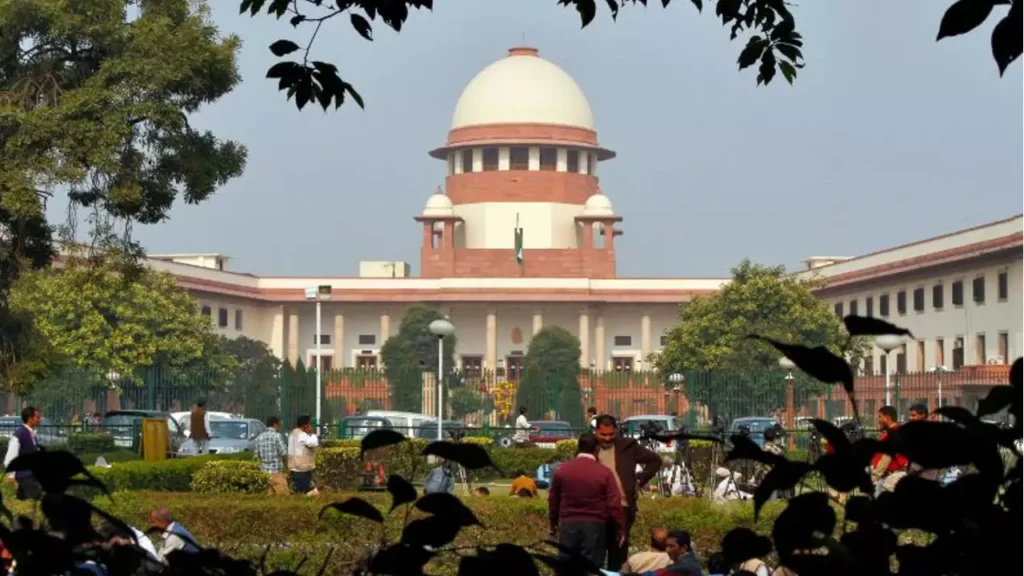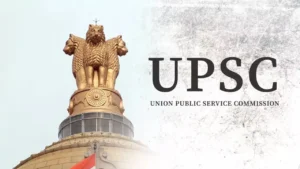Supreme Court Halts Allahabad High Court’s Controversial Verdict: A Major Legal Development

In a significant legal development, the Supreme Court of India has intervened to halt the controversial verdict passed by the Allahabad High Court, which had raised eyebrows for its potentially far-reaching implications on the rights of individuals and the interpretation of key laws. The decision has sent shockwaves through the legal community and sparked heated debates over the balance of power between the judiciary and the protection of fundamental rights.
Background of the Case
The case in question involves a decision by the Allahabad High Court regarding a matter that involved the interpretation of constitutional principles and legal precedents. The ruling, which was issued by the High Court in early 2025, was controversial for its broad implications on individual freedoms and privacy rights, particularly in relation to laws surrounding personal autonomy and free speech. The verdict was seen as overstepping the bounds of judicial interpretation, leading many to believe it could set a dangerous precedent if allowed to stand.
The core issue revolved around the application of certain personal rights under Indian law, especially in the context of freedom of expression and the extent to which state authorities could regulate and monitor individual behavior. In its verdict, the Allahabad High Court had imposed certain restrictions on the media and individuals, including the enforcement of surveillance measures in private spaces under the guise of public safety and national security.
The Controversial Ruling
The Allahabad High Court’s judgment triggered widespread concern for its potential to infringe upon personal liberties. The ruling was seen by critics as a step backward in India’s ongoing efforts to protect privacy and individual freedoms. Specifically, the High Court’s verdict granted greater powers to state agencies to monitor private communications and activities, which many experts and civil rights groups argued could pave the way for state-sponsored surveillance on an unprecedented scale.
The case had garnered significant attention due to its potential implications on freedom of speech and privacy rights under the Indian Constitution. Legal experts noted that the decision contradicted established legal principles, including the right to privacy, which was reinforced by the Supreme Court’s landmark judgment in 2017 that recognized the right to privacy as a fundamental right.
Supreme Court’s Intervention
Reacting to the growing public outcry and the potential for the High Court’s ruling to undermine constitutional protections, several individuals and organizations filed appeals before the Supreme Court. The apex court agreed to hear the case urgently, acknowledging the legal and constitutional implications of the lower court’s decision.
In a swift move, the Supreme Court stayed the Allahabad High Court’s verdict, halting its enforcement until further hearings could take place. The decision was welcomed by legal experts and civil rights advocates, who argued that the High Court’s ruling threatened to erode the constitutional rights of Indian citizens. By staying the verdict, the Supreme Court sent a strong message about the protection of individual freedoms and the importance of maintaining judicial checks and balances.
Legal and Political Reactions
The Supreme Court’s decision to intervene has sparked a range of reactions from political parties, legal experts, and civil society organizations. Those in favor of the ruling have praised the Supreme Court for stepping in to safeguard constitutional rights and for sending a clear message against overreach by lower courts. Human rights organizations, in particular, have welcomed the stay, arguing that the Allahabad High Court’s verdict would have undermined fundamental freedoms and provided excessive power to the state over individuals’ private lives.
However, the decision has also attracted criticism from some quarters. Certain sections of the political establishment and legal commentators have expressed concern over what they see as judicial overreach, with some claiming that the Supreme Court should not have intervened in a matter that had already been decided by a competent High Court. They argue that the Allahabad High Court’s decision was based on a legitimate interpretation of the law, aimed at ensuring public safety and security, and that the Supreme Court’s intervention could be seen as undermining the authority of the High Court.
Implications for the Future of Privacy and Freedom of Expression
The Supreme Court’s move to halt the Allahabad High Court’s verdict has far-reaching implications for the future of privacy and freedom of expression in India. While the court’s intervention has temporarily stopped the enforcement of the controversial ruling, it also raises important questions about the delicate balance between individual rights and state authority.
The larger issue at stake is the extent to which state agencies should be allowed to monitor private communications and activities under the guise of national security and public safety. The case has brought to the forefront ongoing debates about the scope of surveillance, data protection, and the limits of state power in the digital age. As technology continues to evolve and the state’s ability to monitor and control public and private spheres increases, the question of how to protect privacy while ensuring national security remains an urgent issue.
The Supreme Court’s eventual ruling on the case could set a crucial legal precedent, either reinforcing the protection of individual rights or allowing the state greater authority over its citizens. Legal experts have suggested that this case could become one of the defining moments in India’s judicial history, particularly in the context of privacy rights, freedom of expression, and government surveillance.
Next Steps and Public Scrutiny
With the Supreme Court halting the Allahabad High Court’s verdict, all eyes are now on the next steps in the legal proceedings. The apex court has scheduled further hearings to examine the merits of the case and determine whether the Allahabad High Court’s decision should be upheld or overturned. In the meantime, the issue is likely to remain under intense public scrutiny, with legal experts and civil society organizations continuing to monitor the case closely.
As India grapples with issues surrounding privacy, data protection, and civil liberties, the Supreme Court’s final ruling will be crucial in determining the future landscape of individual freedoms and government authority in the country.



